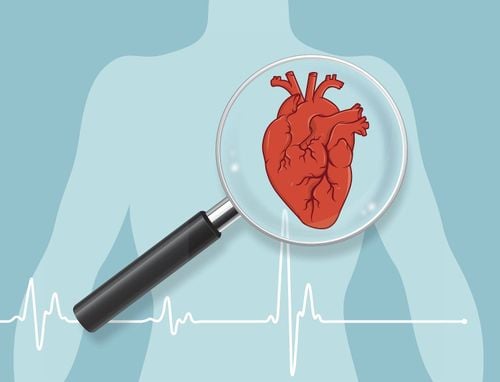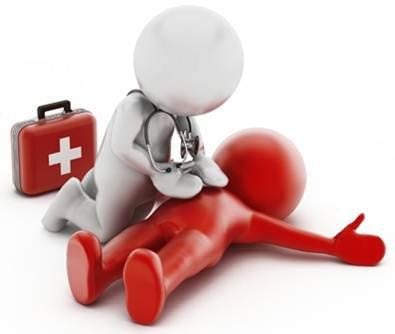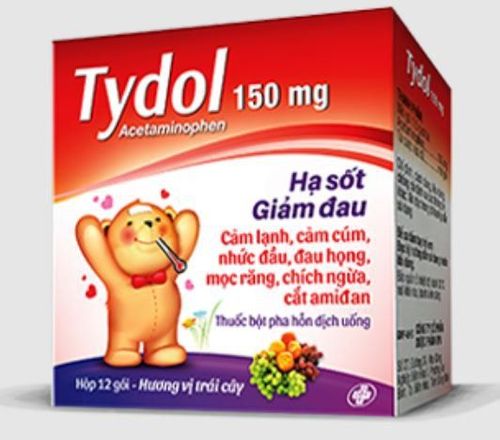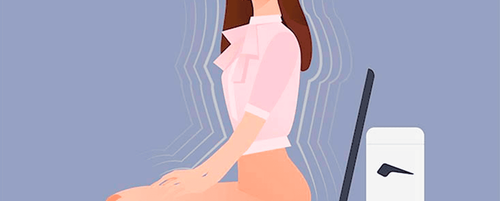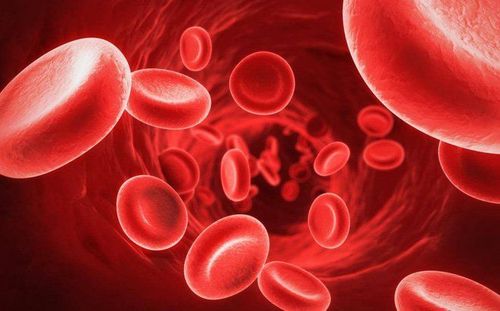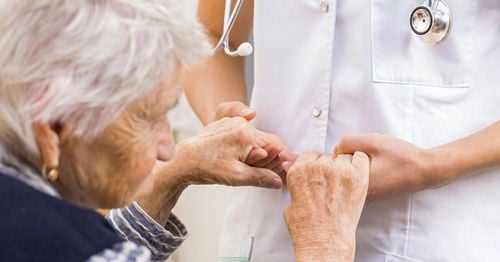This is an automatically translated article.
Your body will adjust its own appropriate responses to adapt to its surroundings, such as when the temperature changes, or when you feel stress or some other condition of which you are not aware get that. For example, when it's too hot, your body will sweat, and when it's cold, your body will shiver.
1. Why do shivers occur?
Chilling occurs is your body's way of reacting in case of rapid temperature changes or cold temperatures.
However, this is not only the body's response in a cold environment, shivering is also a symptom of an illness that needs to be treated immediately. There are many reasons why you might shiver. Includes:
1.1 Cold environment When the temperature drops to a certain level, you may start to feel shivery. Shivering helps to warm the body's temperature to acclimatize to the outside temperature. Shivering can warm up the body for a long time. After a few hours, your muscles will run out of glucose (sugar) for fuel, and will become too tired to contract and relax.
The shivering phenomenon in each person will occur at different temperatures. For example, children don't have as much subcutaneous fat, so shivering can occur with higher temperatures than adults.
Your sensitivity to cold may also change with age or because of health concerns. For example, if you have an underactive thyroid (hypothyroidism), you're more likely to feel cold than someone who doesn't.
Wind or water seeping into your clothes can also make you feel colder and lead to shivering.

Cơn gió lạnh cũng có thể gây nên hiện tượng rùng mình
1.2 After anesthesia You may feel uncontrollable shaking as the anesthetic wears off and wake up from surgery. Although the exact cause has not been determined, some think that this is because the operating room often has a low temperature, and lying for a long time in the operating room causes your body temperature to drop significantly.
General anesthesia can also interfere with your body's normal temperature regulation.
1.3 Low blood sugar A drop in blood sugar can be the cause of a shivering reaction. This can happen if you have to fast for a certain time. Shivering can also occur if you have a medical condition that affects your ability to regulate blood sugar, such as diabetes.
Low blood sugar can affect people in different ways. If you don't shiver, you may sweat, feel lightheaded, or have a fast heartbeat.
1.4 Infection When you shiver, but you don't feel cold, it could be a sign that your body is starting to fight a viral or bacterial invasion. Just as shivering is a way to warm up your body on a chilly day, this is also a way to warm up the body enough to kill the invading bacteria or virus.
Shivering can be the beginning of a fever. Fever is another way for your body to fight infection.
1.5 Fear Sometimes, shivering has nothing to do with your health or the temperature around you. Instead, a spike in adrenaline levels can send shivers down your spine. If you feel fear, you start to feel shaky, which is a response to the rapid rise of adrenaline in your blood.
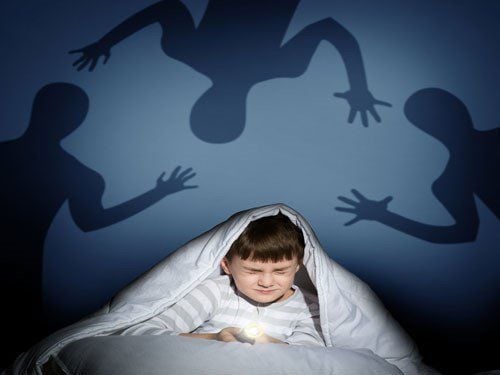
Nỗi sợ hãi làm tăng adrenaline trong máu gây nên hiện tượng rùng mình
2. The phenomenon of shivering in children
Young children don't shiver in the cold because they have a different temperature-regulating response. Young children warm their bodies by burning fat in a process called thermogenesis. It is similar to how animals hibernate to survive and stay warm during the winter.
If you see your baby shivering, it could be a sign of low blood sugar. It may simply be that the child is hungry and in need of energy.
3. The phenomenon of shivering in the elderly
In older adults, there can be several causes of tremors, including Parkinson's disease.
Certain medications, such as bronchodilators used to treat asthma, can also cause shivering.
As you age, you may also become more sensitive to lower temperatures. This is partly due to the thinning of the subcutaneous fat layer and the reduced rate of circulation.
4. Treatment of tremors
Shivering can be a symptom of a medical condition, so you shouldn't ignore it. If you feel especially cold and wearing a sweater or raising the temperature in your home is enough to warm you up, you probably don't need to see a doctor. If you notice that you often feel colder, you should consult your doctor. It could be a sign you should have your thyroid checked.If you feel shivers accompanied by other symptoms, such as fever or flu, you should immediately go to a medical facility for an accurate diagnosis of your condition. The sooner you identify the cause of your shivers, the simpler and more effective treatment will be. If you notice a tremor in your hands or feet that is clearly not a cold-related shiver. You should let your doctor know about this sign. The right treatment plan for shivers and other symptoms will depend on their underlying cause.
4.1 Cold environment If your shivering is a reaction to cold weather or your skin is wet, you need to dry your body and dress warmly to prevent shivering. You may also need to set the thermostat in your home to a higher temperature if age or other conditions make you more sensitive to the cold. Make it a habit to bring a sweater or jacket when you travel.
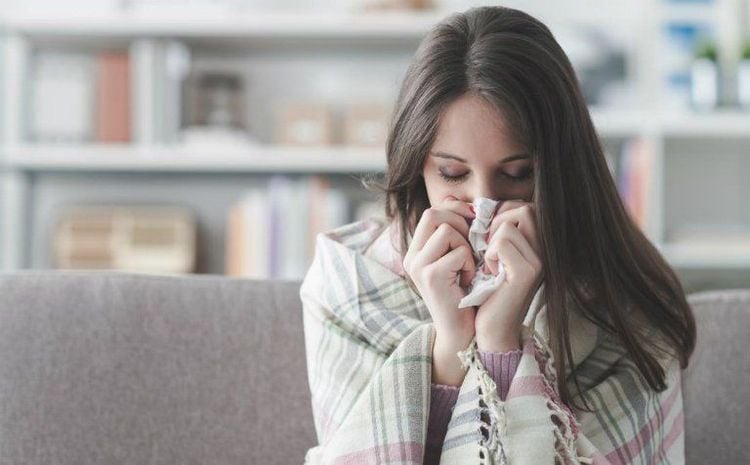
Điều chỉnh điều hòa ở nhiệt độ phù hợp tránh bị lạnh
4.2 Infection Usually, the only treatment is rest. In some severe cases, antiviral drugs can be effective.
If you have a fever, cool your body by using a towel soaked in warm water to wipe your body. Be careful not to put cold water on your skin, as it can make you shiver or make your shivers worse.
If your body is attacked by bacteria, you need antibiotics to treat it. If you have a cold because of a medical condition, don't put on too many blankets or wear too many layers of clothing. You need to take your body temperature to make sure you don't have a fever.
4.3 Low blood sugar Eating a high-carb snack, such as a peanut butter or banana sandwich, can often be enough to bring your blood sugar back to normal. In general, you should not fast for too long. This will make you more likely to have a drop in blood sugar or have trouble keeping your blood sugar in the normal range.
If you have frequent drops in blood sugar, you should bring a granola bar or snack so you can eat it at any time.
4.4 After surgery Usually, a few blankets wrapped around you after surgery is enough to warm you up and stop shivering. If you are uncomfortable or worried about your shaking, you should let your nurse or doctor know.
When shivering is a response to feeling cold, you need to use a blanket or put on an extra shirt to warm up your body. A cup of hot tea or coffee can also help.
If you are sick, you need to remember that shivering can be the start of a fever, so be careful not to overheat. And if you notice that you, your child or an elderly parent are experiencing shivers, but it doesn't seem to be due to one of the outside causes, you should let your doctor know about this symptom. Shivering, chills can be a sign of a medical condition, so you need to go to a medical facility immediately for a timely diagnosis and examination if you feel abnormal.
Please dial HOTLINE for more information or register for an appointment HERE. Download MyVinmec app to make appointments faster and to manage your bookings easily.
Articles refer to sources: healthline.com, livescience.com



